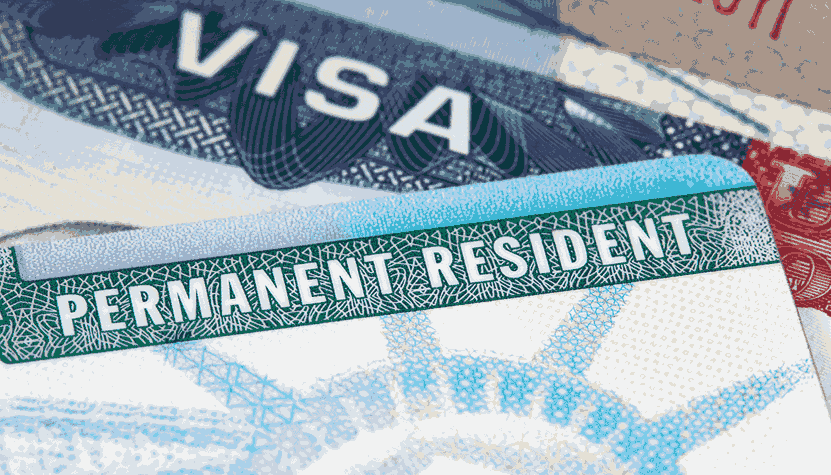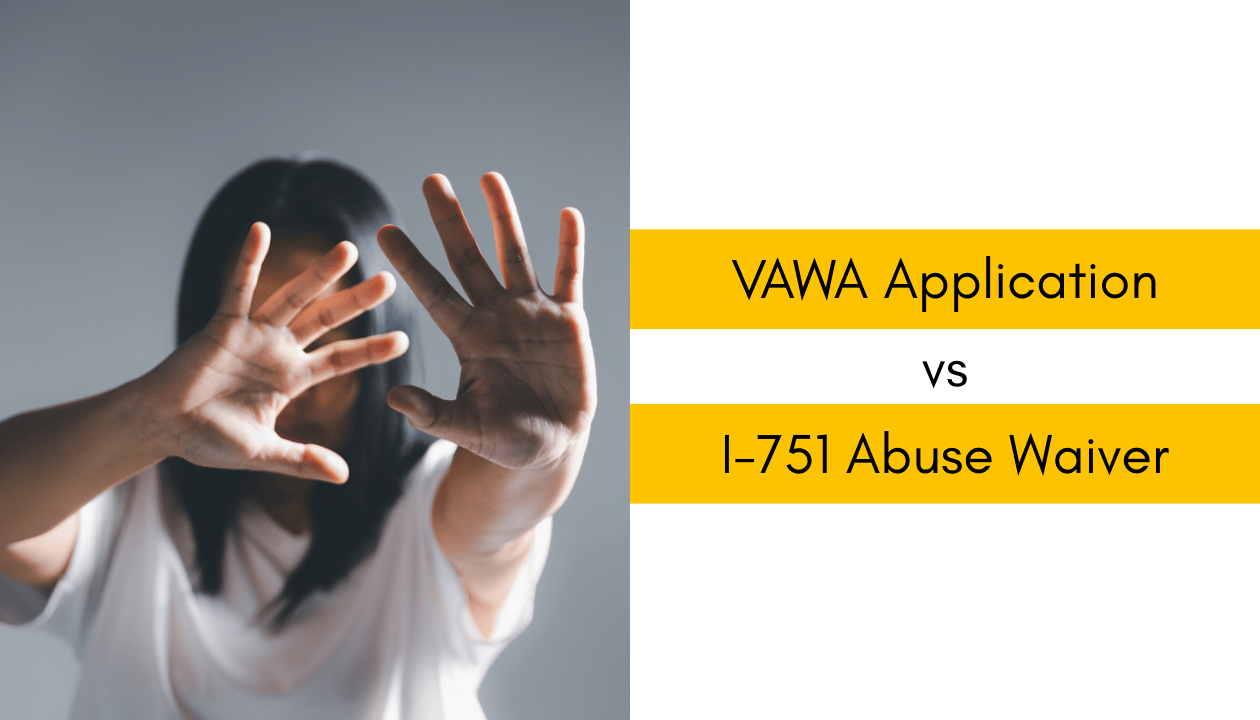Receiving a green card is a major milestone, but not all green cards grant permanent residency immediately. Many immigrants receive conditional resident status, which means they must take additional steps to secure their permanent resident status.
For those who obtained a marriage-based green card, this means filing Form I-751 before the conditional green card expires. Most couples file jointly, but not every marriage lasts.
Divorce, abuse, or extreme hardship can make joint filing impossible, leaving many wondering if they can still keep their green card. Fortunately, a waiver request allows conditional green card holders to remove conditions without their spouse.
Understanding the requirements and avoiding common mistakes can help secure your place in the U.S., but the process can be complex.
At The Chidolue Law Firm, we have helped countless clients navigate the petition to remove conditions, ensuring they meet legal requirements and avoid unnecessary delays.
Knowing your options and taking the right steps can make all the difference in protecting your future.
What Is Conditional Permanent Resident Status?
A conditional green card is granted to individuals who receive their permanent resident status based on a marriage that is less than two years old at the time of approval. Instead of receiving a permanent green card, these individuals are given conditional permanent resident status, which remains valid for only two years.
This conditional status is meant to ensure that the marriage was entered into in good faith and not solely for immigration benefits. Before the conditional green card expires, holders must file Form I-751 to request the removal of conditions on residence and transition to a permanent resident card.
For most applicants, this requires joint filing with their spouse. However, if the marriage ends in divorce, annulment, or abuse—or if facing extreme hardship—a waiver request allows the applicant to file without their spouse’s support.
Failure to take action before the expiration date can lead to serious consequences, including loss of permanent resident status and potential removal proceedings.
How to Remove Conditions on Residence
A conditional green card does not provide permanent status on its own. To maintain lawful permanent resident status, conditional residents must take action before their conditional residence expires. The process for removing conditions depends on whether the applicant is still married or if they qualify for a waiver request.
Joint Filing Requirement for Married Couples
For couples who remain married, the process involves filing Form I-751, known as the Petition to Remove Conditions on Residence, with U.S. Citizenship and Immigration Services (USCIS). This form must be submitted within the 90-day period before the conditional green card expires.
Along with the petition, applicants must provide supporting documentation that proves the marriage was entered into in good faith, such as:
✔ Joint bank accounts and financial statements
✔ Joint ownership of property, lease agreements, or utility bills
✔ Birth certificates of children born to the couple
✔ Affidavits from family and friends verifying the relationship
What If You Can’t File Jointly?
Some conditional green card holders may not be able to file a joint petition due to divorce, abuse, or extreme hardship. In these cases, a waiver request allows them to apply individually and still secure permanent residency.
Failing to properly file or missing the expiration date can lead to the loss of permanent resident status and possible removal proceedings.
When Can You Use a Waiver Instead of Joint Filing?
Not every conditional permanent resident can meet the joint filing requirement to remove conditions on their green card. If filing jointly with a spouse is not an option, USCIS allows a waiver request under certain circumstances.
Here are the situations where Form I-751 can be filed without a joint petition:
1. Divorce or Annulment
If the marriage has ended, you can request a waiver by proving that the relationship was real and not solely for immigration purposes. Evidence of a bona fide marriage before the divorce—such as joint bank accounts, shared assets, or joint responsibility for bills—can strengthen the case.
2. Abuse or Extreme Cruelty
If the U.S. citizen or lawful permanent resident spouse was abusive, the conditional resident can file for a waiver under the extreme cruelty provision. Documentation such as police reports, medical records, restraining orders, or sworn affidavits from therapists or family members can support the case.
3. Extreme Hardship
If removal from the U.S. would cause extreme hardship, a waiver may be granted. This applies to cases where the applicant’s home country is experiencing war, persecution, or medical crises.
Each waiver request must be supported with as many documents as possible to prove the need for an exemption from the joint filing requirement.
Failing to provide enough supporting documentation or filing late can result in delays or even removal proceedings.
Supporting Documents for a Successful Waiver Request
When filing Form I-751 with a waiver request, USCIS requires strong supporting documentation to prove that the marriage was legitimate or that exceptional circumstances justify the waiver. Submitting as many documents as possible helps strengthen the case and avoid unnecessary delays.
For Divorce or Annulment Waivers
Applicants who file due to a terminated marriage must prove that the relationship was entered into in good faith before it ended. Acceptable evidence includes:
✔ Marriage certificate and proof of shared assets
✔ Joint bank accounts, tax returns, or insurance policies
✔ Lease agreements or property ownership in both names
✔ Birth certificates of children born during the marriage
✔ Affidavits from friends, family, or professionals who can confirm the relationship
For Abuse or Extreme Cruelty Waivers
Those filing due to extreme cruelty by a U.S. citizen or lawful permanent resident spouse must submit evidence of mistreatment, such as:
✔ Police reports or restraining orders
✔ Medical records or psychological evaluations
✔ Sworn statements from therapists, counselors, or social workers
✔ Witness affidavits from family, friends, or neighbors
✔ Any documented history of domestic violence or threats
For Extreme Hardship Waivers
Applicants claiming extreme hardship must prove that their removal from the U.S. would cause significant difficulties beyond what is typically expected in immigration cases. Supporting evidence may include:
✔ Medical records proving a health condition that requires U.S.-based treatment
✔ Evidence of unsafe conditions or persecution in the applicant’s home country
✔ Financial records showing economic hardship upon deportation
✔ Letters from community leaders, religious figures, or employers explaining the hardship
Each waiver petition must be carefully prepared, and failure to provide sufficient documentation may result in rejection or further scrutiny by USCIS.
Common Mistakes That Lead to Delays or Denials
Filing Form I-751 with a waiver request is a complex process, and even small errors can result in delays, requests for additional evidence, or outright denials. Here are the most common mistakes that conditional green card holders should avoid:
1. Filing Late or After the Green Card Expires
Many applicants miss the 90-day filing window before their conditional green card expires. Filing late without a valid reason can result in the loss of permanent resident status and even trigger removal proceedings.
2. Submitting Insufficient Supporting Documentation
A lack of strong supporting documentation is one of the top reasons for denials. Applicants must prove that their marriage was in good faith or provide compelling evidence of extreme hardship or extreme cruelty. Without proper records, USCIS may question the legitimacy of the case.
3. Incorrectly Filing Form I-751
Mistakes in filing instructions, missing information, or sending the petition to the wrong USCIS office can result in rejection. Even minor errors can cause unnecessary processing delays.
4. Failing to Provide a Written Explanation
Applicants who are filing without a spouse must explain their circumstances. Whether due to divorce, abuse, or hardship, failing to submit a written explanation along with evidence can weaken the petition.
5. Ignoring USCIS Requests or Missing Appointments
After submitting Form I-751, applicants may receive a receipt notice and later an appointment notice for biometrics or an interview. Missing these can lead to further delays or a denied petition.
A properly prepared application with strong supporting evidence reduces the risk of processing times dragging out longer than necessary.
What Happens After You File Form I-751?
Once Form I-751 is submitted, USCIS follows a multi-step process to review the petition and determine whether to grant permanent resident status. The timeline and outcome depend on the strength of the application, supporting evidence, and whether an interview is required.
1. Receipt Notice and Biometrics Appointment
After properly filing Form I-751, applicants receive a receipt notice confirming that USCIS has accepted the petition. This notice extends the applicant’s conditional green card status for up to 48 months while the petition is being processed.
A biometrics appointment notice is also sent, requiring the applicant to visit a USCIS office for fingerprinting and background checks.
2. USCIS Review and Potential Requests for Evidence (RFE)
USCIS reviews the application, verifying the legitimacy of the marriage-based green card and assessing the good faith of the relationship. If USCIS needs additional proof, a Request for Evidence (RFE) may be issued. Applicants must respond within the given deadline to avoid delays or denial.
3. Interview (If Required)
Some applicants may be scheduled for an interview at a local USCIS office. During this interview, an immigration officer may ask questions about the marriage or reasons for the waiver request.
4. USCIS Decision: Approval or Denial
If USCIS approves the petition, the applicant receives a permanent resident card (10-year green card). If the petition is denied, removal proceedings may begin, requiring the applicant to present their case before an immigration judge.
A well-prepared application, along with legal guidance, can increase the chances of a smooth approval without unnecessary delays.
Why Legal Guidance Matters When Filing a Waiver
Filing Form I-751 with a waiver request is not just about submitting paperwork—it’s about proving your right to remain in the U.S. as a lawful permanent resident. Given the strict USCIS process and the risk of removal proceedings, legal mistakes can have serious consequences.
Here’s why working with an experienced immigration attorney is crucial:
1. Avoiding Common Filing Mistakes
An attorney ensures that Form I-751 is properly filed, includes all necessary supporting documentation, and follows filing instructions to prevent unnecessary delays.
2. Strengthening Your Case with Evidence
A weak application can result in USCIS requests for additional evidence or even a denial. A lawyer can help gather and present the strongest possible proof of a bona fide marriage, extreme hardship, or extreme cruelty.
3. Protecting Your Status if You Face a Denial
If USCIS denies your petition, an attorney can represent you in immigration court, prepare a strong defense, and help prevent deportation.
4. Navigating the Complex Immigration System
The U.S. immigration system is constantly changing, and legal guidance ensures that you stay compliant with current immigration laws.
Filing alone can be risky—having legal support increases your chances of approval and helps you avoid costly mistakes that could jeopardize your permanent resident status.
Take the Next Step to Secure Your Permanent Residency
Removing conditions from your green card is a critical step in securing your permanent resident status. Whether you are filing Form I-751 jointly or requesting a waiver, a mistake in the process could lead to delays, denials, or even removal proceedings.
At The Chidolue Law Firm, we have successfully helped countless conditional green card holders transition to lawful permanent residency. Our team ensures your petition is properly filed, your evidence is strong, and your rights are fully protected.
📞 Call us today at:
➡ 407-995-6567
➡ 678-325-1037
💬 For WhatsApp inquiries, contact:
➡ 404-333-8751
Don’t wait until it’s too late—secure your future in the U.S. with trusted legal guidance. Let us help you take the next step toward your permanent residency.



